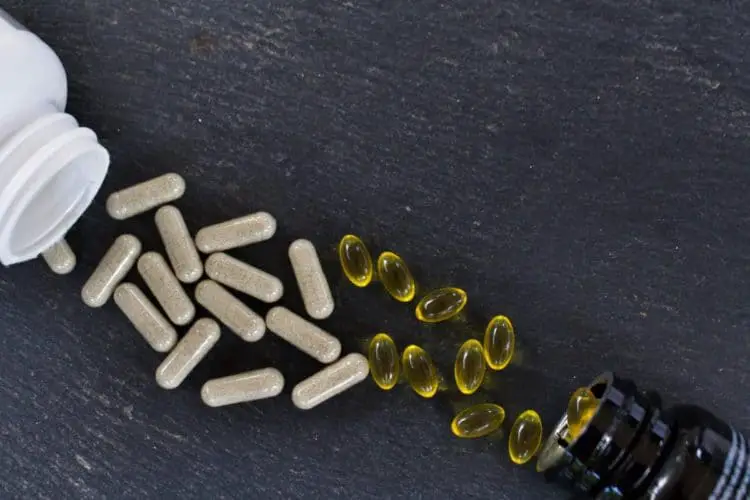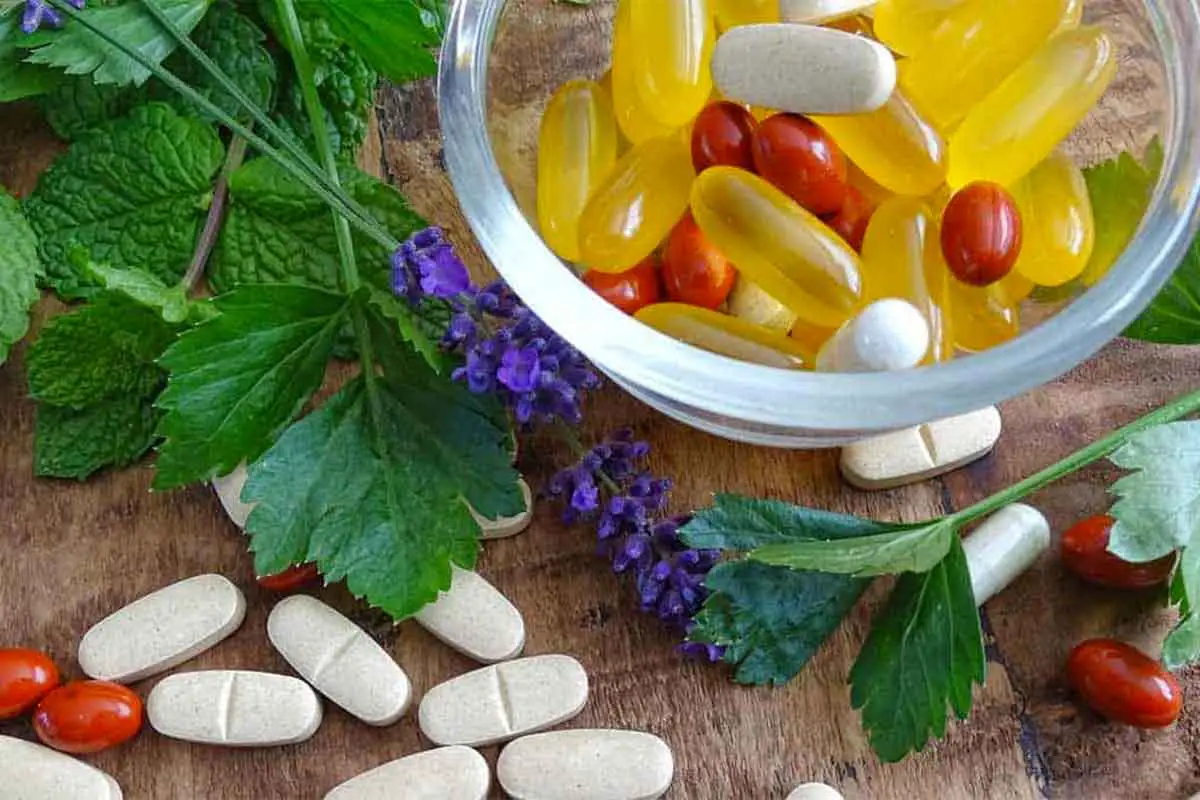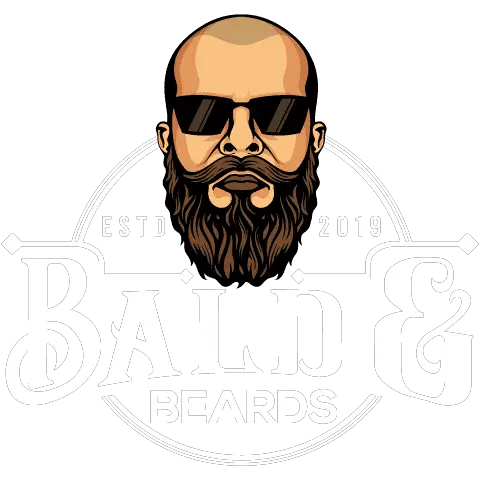While we lose an average of 100 strands of hair daily, men and women with hair loss can lose much more. Some problems are hereditary, while in other cases, it could be stress or certain androgen hormones called DHT. Whatever the case, certain vitamin deficiencies can intensify the issue, making it harder to grow hair.
Studies show taking the right vitamins and supplements can help stimulate new hair growth. Especially antioxidants like vitamins C and E that block scalp-damaging free radicals. Where taking vitamin B-12, Biotin, Zinc, or Iron plays a critical role in hair regrowth.
While you may enlist Rogaine for a topical treatment, many dermatologists also recommend hair growth vitamins and supplements to help with hair loss. So, what are the best vitamins for hair growth? Keep reading to find out more.
What Vitamins are Good for Hair Growth?
Minerals and vitamins help the human body stimulate hair growth and maintain a healthy glow. However, if your diet is not rich in some of these vitamins, you may have to increase your intake through vitamin supplements.
Since many nutritional deficiencies are linked to a lack of hair growth, some studies have found the vitamins below are essential for hair health.
1. Vitamin A
If you’re not eating enough carrots, you probably don’t have enough vitamin A in your system. Every person could use a bit more vitamin A in their diet. This fat-soluble vitamin is responsible for everything from vision health to immune system strength to reproduction. Studies have found that vitamin A helps the heart, kidneys, lungs, and other organs to function properly.
In addition, studies have found that vitamin A deficiencies lead to significant hair loss, but you also have to maintain a good balance. When vitamin A tips into overdose, it can leave your follicles vulnerable to hair loss.
If you find that your scalp is dry and you have brittle hair, eating nutrient-rich foods like sweet potatoes, carrots, spinach, pumpkin, and kale will help as they are high in beta-carotene, which changes into vitamin A in the human body. You can also get vitamin A from eggs, yogurt, milk, and cod liver oil.
2. B-Vitamins or Biotin
B vitamins are extremely important for basic health by helping metabolize amino acids, fats, and carbohydrates. As a B vitamin, you regularly absorb Biotin from foods like salmon, eggs, and sunflower seeds. It’s also thought that Biotin helps with hair growth. However, medical science is limited to date in that a surplus of biotin would increase hair growth.
Some patients show results, including thicker hair and a resurgence of hair growth. A Biotin study in 2015 found that after giving patients an oral marine protein supplement with biotin for 90 days, the patients showed signs of hair growth in once thin areas and shedding hair profusely.
While Biotin deficiency is rare, experts recommend that you add as much as 30 mcg of the vitamin per day, but if you want to change your body’s chemistry, you should consider adding some of these Biotin-rich foods to your diet:
- Liver or kidney meats
- Egg yolks
- Bananas
- Mushrooms
- Cauliflower
- Soybeans
- Almonds, peanuts, and walnuts
Besides possible hair growth and even beard growth, Biotin helps improve cognitive functions, lowering blood sugar for those with diabetes, increasing good HDL cholesterol, and reducing inflammation.

3. Vitamin D
If you are suffering from alopecia, you may have a vitamin D deficiency. Studies have shown a link between low vitamin D levels and hair loss. Researchers now know that vitamin D promotes the creation of new hair follicles on the scalp. While this research is preliminary, it shows that vitamin D plays a role in hair production because of the healthy growth of hair receptors.
While everyone can produce vitamin D by sunbathing and absorbing it through the sun’s rays, some good dietary sources also contain this vitamin. For example, cod liver oil, mushrooms, fatty fish, and other fortified foods are great sources of vitamin D.
You can also take supplements, but you may need to exercise more outside to get more vitamin D.
4. Vitamin C
Do you drink orange juice every day to boost your vitamin C levels? Vitamin C helps you block free radical damage that can hinder hair growth and cause your hair to age faster. Doctors reveal that vitamin C is a strong antioxidant that blocks out oxidative stress caused by these free radicals in the body.
Your body also needs vitamin C to create another protein called collagen. Studies have shown that collagen is important to your hair’s structure. As a water-soluble vitamin, vitamin C has many benefits for your body, including preventing hair loss.
Most of your vitamin C intake goes to repairing and creating human tissue essential for healing wounds. It also helps create strong teeth and bones. If you have a vitamin C deficiency, you may see more hair loss because, without it, hair strands age, becoming brittle and easily broken.
Some of the best hair growth foods you can add to your diet if you have a vitamin C deficiency include:
- green peppers
- spinach
- blueberries
- oranges
- mango
- pineapple
- winter squash
- tomatoes
- papaya
If you want a vitamin C supplement, the USDA sets a recommended dietary allowance of 90 mg daily for adults. If you smoke, then you can increase your intake by +35 mg a day.
5. Iron
Are you anemic? You may have an iron deficiency that’s causing stress and hair loss. Iron naturally helps your red blood cells carry oxygen to other cells.
However, if you have anemia, you may think you have male pattern balding when it lacks iron. Symptoms look the same for patients with anemia and male pattern hair loss.
That’s why iron is one of the best supplements for hair loss prevention. One study found that increasing iron intake for patients led to significant hair regrowth, even when patients thought they had male pattern hair loss.
If you do have an iron deficiency, you should ask your doctor for a ferritin level blood test. This measures your blood for protein levels called ferritin, which stores iron in the body.
Doctors also suggest eating a diet high in spinach, peas, and lean proteins like salmon and dried fruit. Iron-fortified foods are the best to shop for when you have an iron deficiency.
6. Vitamin E
Vitamin E is best known because of its antioxidant characteristics. Antioxidants help reduce free radicals and protect your body’s cells. Although many beauty products contain vitamin E, it’s an essential antioxidant that you need for hair growth and shine.
One vitamin A study found that vitamin E supplements increased hair growth significantly. The study found that the supplements reduced oxidative stress and improved scalp circulation. In other cases, it helped to balance out oil production on the scalp.
Topical Applications
Some topical applications, including avocado oil creams, have proven to help with hair growth on the scalp. These oils have a high vitamin E content and support a healthy scalp. However, there are also things that you can eat to increase your vitamin E intake naturally. A diet of sunflower oil, olive oil, nuts, and leafy greens can help you increase your vitamin E intake daily.
Most people don’t need to take vitamin E supplements, and these may hurt your health. If you want pure vitamin E oil, experts say you must dilute the oil with water before applying it to the scalp.
You can use these products to massage into your scalp, then allow the oil to sit for 15 minutes and absorb into your scalp.
7. Niacin
Niacin is another B vitamin known for turning carbohydrates into energy. As a B3 vitamin, it helps distribute energy to our cells and maintains their health.
However, it’s also important to blood circulation. It brings nutrients and oxygen to hair follicles. You may notice thinner hair due to poor scalp health and blood circulation if you aren’t getting enough niacin in your diet.
Products like Nutrafol can help by improving your niacin levels.
Benefits
Studies have shown that niacin affects blood vessels near the skin more intensely. These vessels tend to open up when exposed to niacin. Some doctors suggest taking a B3 vitamin after every meal to aid digestion and increase your niacin intake.
You can also find Niacin in beets, beef, nuts, mushrooms, sunflower seeds, tuna, and many dairy products.
Considerations
A potential downside of niacin deficiency is weight gain. If your hair is thinning and you have put on a few pounds, you could benefit from a B3 vitamin.
Doctors also suggest that if you smoke, drink alcohol regularly, or take painkillers, you’re at risk for a niacin deficiency because your body cannot absorb this vitamin. You may need to talk to your doctor and get a blood test if you’re on these medications and wish to increase your niacin intake.
Final Thoughts
The short answer is yes! However, not all vitamins will cure pattern hair loss. However, if you have thinning hair and symptoms of male pattern hair loss, you could have a vitamin deficiency, according to many researchers.
While you may have heard of hair growth supplements, increasing your vitamin and mineral intake at a natural level is a far better way to go. You help your body by improving your nutrition, and you remove the risk of overdosing on vitamins, which can be a problem.
FAQ
What’s the best vitamin for hair growth?
The most beneficial vitamins for hair growth include vitamins B, C, and D, along with minerals like iron and zinc. These nutrients contribute to hair strength, thickness, and overall scalp health. Supplements targeting these vitamins and minerals can aid in enhancing hair growth.
Do hair growth vitamins work?
Hair growth vitamins are effective for individuals experiencing hair loss due to nutritional deficiencies. While they may not benefit everyone, those with weakened or brittle hair due to age or lack of specific vitamins can see improvements in hair condition and shine.
What is the number 1 product for hair growth?
The Vegamour GRO+ Advanced Replenishing Shampoo ranks as the top product for hair growth. It outperformed 23 other hair growth shampoos in tests, proving effective in thickening hair and enhancing its length through its advanced formula.
What pill is best for hair growth?
Finasteride, marketed as Propecia, is the most recommended prescription pill for hair growth, specifically for men. Taken daily, it has shown significant results in slowing hair loss and stimulating new hair growth for many users.


